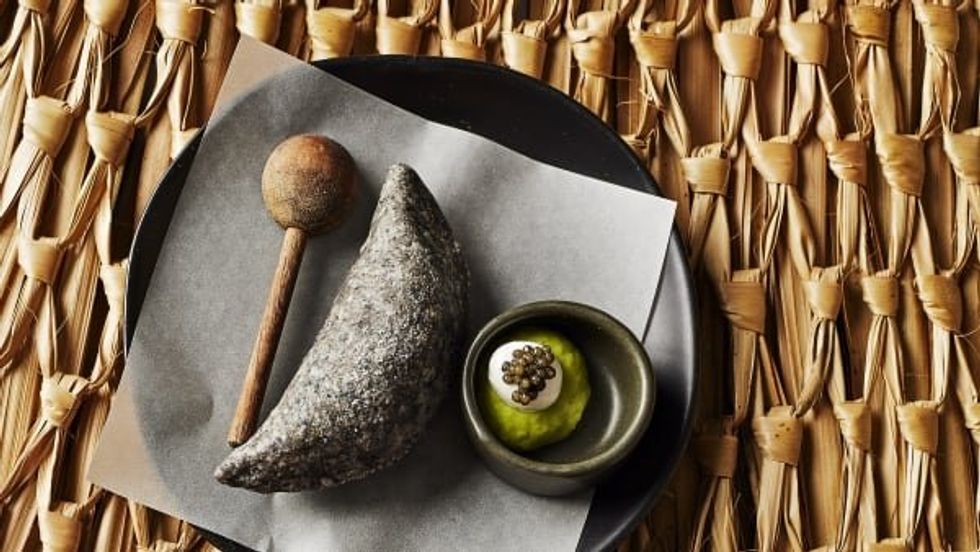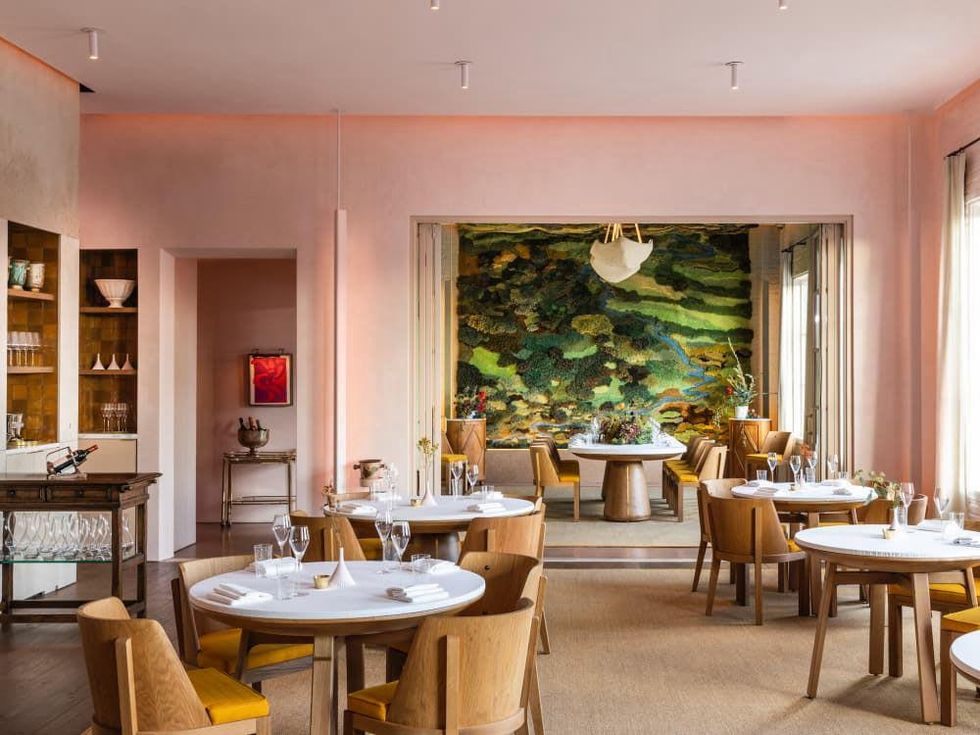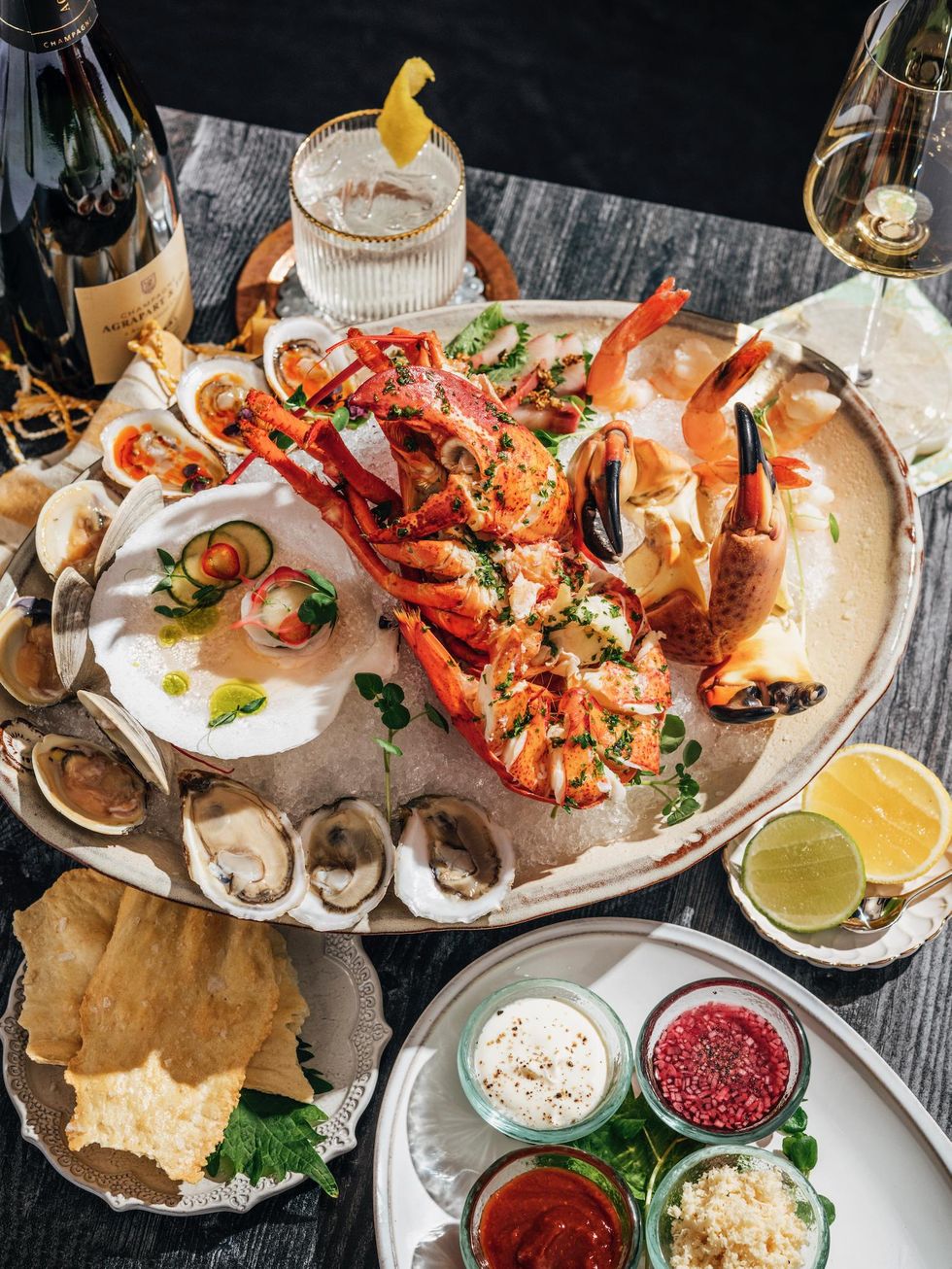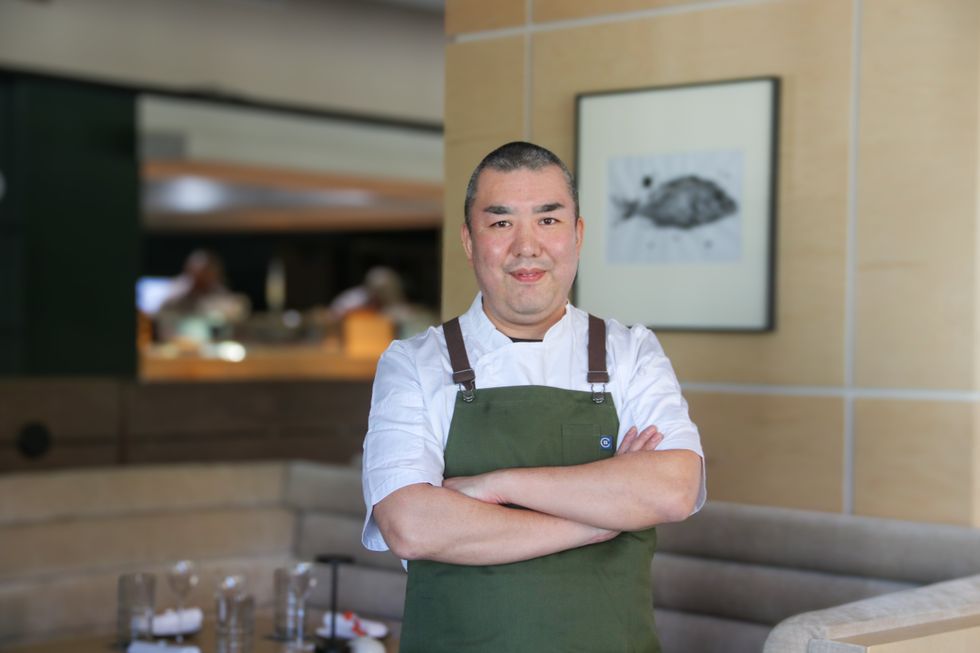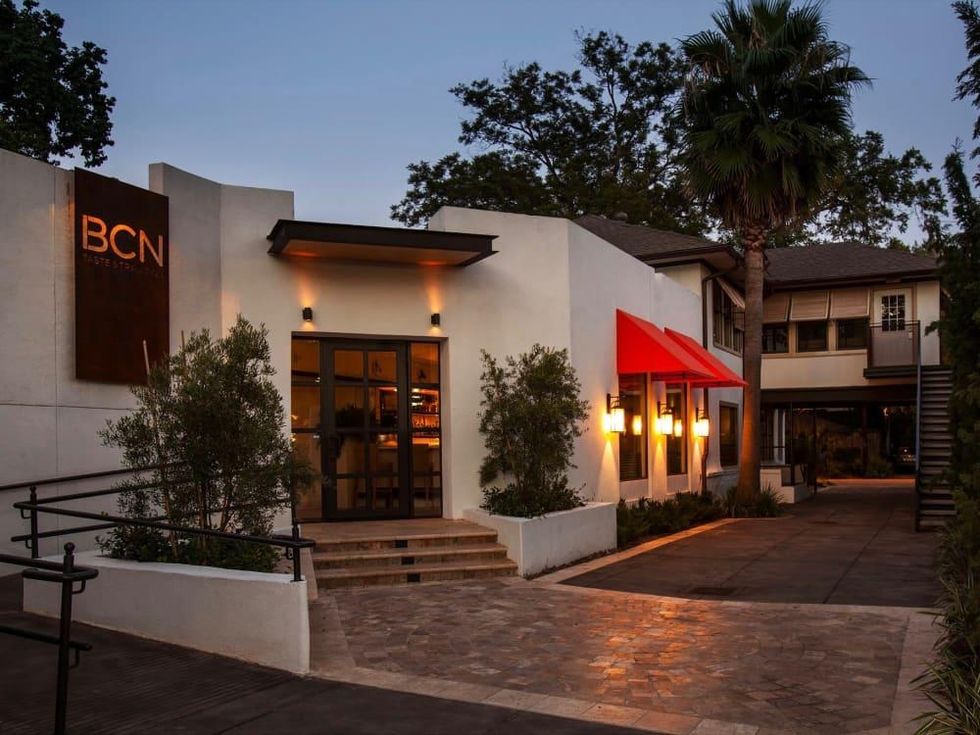Up In Smoke
The Professor hopes to beat the odds at World's Championship Bar-B-Que Contest

For the most part, the World's Championship Bar-B-Que Contest at the Houston Livestock Show & Rodeo is all about the party. Tens of thousands of Houstonians will eat and drink their way through the private tents that form the heart of the Rodeo's kick-off event that ends Saturday.
In the midst of all that revelry, 200-plus teams are competing to win the coveted title of Grand Champion. They'll submit 400-plus entries of brisket, ribs, or chicken that are judged on a 50-point scale. Meats are tagged to ensure that the raw product a pitmaster starts out with is the same food the judges are eating. In addition, all judging is blind; competitors aren't even allowed to decorate their Styrofoam serving containers.
With so many competitors, picking a favorite amongst the teams is nearly impossible, but Tuffy Stone comes close.
Although he's known as "the professor" in his role as a judge on the Destination America reality show BBQ Pitmasters, Stone is more than just a TV personality. He earned a spot at the contest's Champions' Row, because his team, "Cool Smoke," won the prestigious Jack Daniels Invitational in 2015 (he also won in 2013).
Stone will have his work cut out for him if he hopes to take the title. First of all, he's using a pit he's never cooked on before. While it's similar to the Jambo pit he typically uses, Jambo owner Jamie Geer has been unable to join Stone, due to what the company's website describes as a "personal crisis" that scuttled his plans to be Houston. Stone's using a substitute pit, and he's even gotten a little local hope from chef Ronnie Killen, who's supplying him with chicken for the contest.
"It’s been a real combined effort of a lot of people," Stone tells CultureMap. "Someone drove 10 hours to get this pit for me. My wood didn’t make it on time. I’m just now trying to get the lay of the land."
Then again, adapting to different situations has become a way of life for Stone. He only recently returned from a trip to Sydney, where he appeared as a special guest at the inaugural Meatstock Festival and taught barbecue classes to eager Australians. After spending a couple of days in Austin, he made his way to Houston.
Before he began his preparations in earnest, Stone spoke to CultureMap about the Houston Livestock Show & Rodeo cook-off, and why he continues to participate in contests like this one.
CultureMap: How is the Houston Rodeo different from other barbecue contests?
Tuffy Stone: There are so many layers of this event that it’s just incredible. First of all, this is just one component of the whole Rodeo, so that’s pretty tremendous. You’ve got 400-some teams. Some of these corporate parties are unbelievable. My friend Randy Pauly does Holy Cow, which brings in a bar like you wouldn’t believe. The year my dad and I made finals . . . there were 60,000 people here that evening.
If you make finals, the top eight in each category make finals, they come back and tell you. Then you have to do it again. You turn in a second entry. Whoever wins this contest, ultimately gets compared against everyone who made the finals . . . I think that’s really cool.
Then the energy and the spirit of the people in Texas. It probably has more cowboy boots than any contest I’ve seen.
CM: How do you get ready for a contest like this?
TS: I’ve been cooking a whole lot in barbecue. I got a lot of my steps down. My pits are power washed before every event. My knives are sharp. I hand cut every piece of wood. My rubs are fresh. My sauce is fresh. I have my timetable of when I’m doing everything laid out.
There’s so many different channels in my mind. What I’ve got to do now is get in the zone. I got to get focused. There’s a French culinary terms, and it’s called mise en place. It’s to put your things in place, to get organized. I’m going to go in this trailer, and I am going to get all my tools out. I traveled with two carry-ons and two checked bags. It’s got a lot of my small hand tools and knives. I’m going to get my whole station set and focused. I’m going to look over my whole timeline and try to get focused.
Competition barbecue has so many layers. We can’t control what the judges want. You might like your barbecue smoky and someone might like there’s sweet and someone might like theirs spicy. For me, I focus on all the things that I can control. That’s having all my equipment ready, starting off with great product. For me, and some people do it different ways, it’s so mental. It’s getting in that zone.
With television and the success I’ve had on the circuit, a lot of visitors and old friends want to come and say hi. I always make myself accessible for that, but it can sometimes be a disruption of that zone you kind of get in. When i can really get in that zone and all my stuff’s right, I usually close the lid on some good boxes.
CM: Between your catering company, your barbecue restaurants, and our travels, you’ve got a lot going on. Why do you still take the time to cook in competitions?
TS: Someone asked me that question in Australia. This whole world of barbecue is such a crazy adventure. When I started in 2004, I never would have been able to guess that I’d have the experiences I’ve had doing this.
When I got into barbecue, my catering business had grown and I had a lot of full time employees. I got disconnected with cooking, and so I got a barbecue pit and got some wood and got some meat for a way to get reconnected with cooking. It was the most purist reasons for doing barbecue.
Barbecue was such a humbling thing for me. I can make hollandaise or beurre blanc or these foods that I was making and thought that I would surely be able to figure out barbecue. The reality is that barbecue was hard, and it kicked my butt. It was such an amazing experience when I started studying it.
No one’s intimidated by barbecue. No one’s afraid to pronounce barbecue. Barbecue doesn’t discriminate. It doesn’t matter whether you have money or you don’t have money. It doesn’t matter where you come from. Barbecue’s there for everybody that smells it. I was just getting intrigued by this whole thing.
Your question was, why do I still do this? As my life has gotten so complicated and so multi-faceted, when I light that fire, and I take that modest cut of meat like a pork butt or brisket, and I have that singular focus on trying to coax something great out of that piece of meat, and work with that fire to run the best fire I know how, and treat that smoke like salt and pepper for that period and that process, I don’t have to worry about being tardy on deadlines. I don’t have to worry about decision-making other than that single subject. For me, and I don’t get to do it as much as I want to, it’s a nice place to be.
CM: Do you think you’re going to win?
TS: I never think that. I think that I’m going to work as hard as anybody this weekend to do the best that I can do. Last year we never made finals. The year before we made finals. I was on Champions Row last year, and the four teams did not get to the finals.
I’m probably going to push a little more smoke. I think you Texans like a little more smoke than sometimes what I normally do. I’m going to push a little more smoke, and fingers crossed.
Portions of this interview have been edited for length and clarity.

